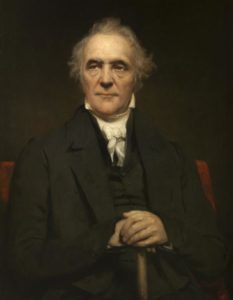
I’ve received many questions about my theological pilgrimage from “Believer’s Baptism” (credobaptism) to “Covenant Baptism” (paedobaptism). But the most common has been: “What book changed your mind?”
I’m always tempted to say, “The Bible,” because my move across the confessional waters is indeed one of sola Scripture. God’s word alone gave—and continues to give—authoritative instruction on baptism. But, it would be wrong to say the journey was one of solo Scriptura. None of us exist in such a vacuum. God places His people in the church to grow in the grace and knowledge of Jesus. He gives us teachers to guide us into and friends to help us hear the truth.
Many conversation partners joined me along the paedobaptist path. There were professors, mentors, fellow pastors, and ordinary church members. I also had a study full of books, many on the sacraments. I read every one I own on each position.
Maybe you are on a similar search for truth, or maybe you want simply to understand the covenant baptism position better. Here’s a short bibliography of what I think are the most helpful books representing the Reformed paedobaptist position.
Beginner
 Beeke, Joel R. Bringing the Gospel to Covenant Children. Grand Rapids, MI: Reformation Heritage, 2010.
Beeke, Joel R. Bringing the Gospel to Covenant Children. Grand Rapids, MI: Reformation Heritage, 2010.
Christian parents need to see that their children are in the covenant. They should also understand that baptism is only the start of covenantal parenting. There’s much work to do. Beeke’s little book gives wise counsel for Spirit-dependent, earnestly-evangelistic leadership of covenant kids.
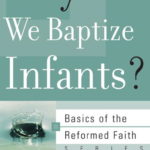 Chapell, Bryan. Why Do We Baptize Infants? Phillipsburg, NJ: P & R, 2006.
Chapell, Bryan. Why Do We Baptize Infants? Phillipsburg, NJ: P & R, 2006.
Chapell’s booklet is most useful for those unaware of the reasons why a Reformed church would baptize covenant children. Incredibly pastoral.
 Hyde, Daniel R. Jesus Loves the Little Children: Why We Baptize Children. Grandville, MI: Reformed Fellowship, 2006.
Hyde, Daniel R. Jesus Loves the Little Children: Why We Baptize Children. Grandville, MI: Reformed Fellowship, 2006.
An excellent and accessible defense of why Reformed churches baptize children.
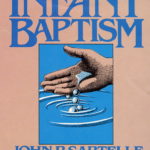 Sartelle, John P. Infant Baptism: What Christian Parents Should Know. Phillipsburg, NJ: P & R, 1985.
Sartelle, John P. Infant Baptism: What Christian Parents Should Know. Phillipsburg, NJ: P & R, 1985.
Sartelle’s booklet is similar to Chapell’s, but it a bit more rigorous in its theology.
Intermediate
 Chaney, J. M, and Ronald Evans. William the Baptist: A Classic Story of a Man’s Journey to Understand Baptism. Phillipsburg, NJ: P & R, 2011.
Chaney, J. M, and Ronald Evans. William the Baptist: A Classic Story of a Man’s Journey to Understand Baptism. Phillipsburg, NJ: P & R, 2011.
I’m amazed so few mention Cheney’s work. Sure, he downplays the reality of baptism signifying union with Christ, but he’s useful on virtually every other matter. The greatest value in the book, however, is its format. William the Baptist is basically a novel, saturated with pastoral dialogue, about one 19th-century man’s path into confessing covenant baptism.
 Fesko, J. V. Word, Water, and Spirit: A Reformed Perspective on Baptism. Grand Rapids, MI: Reformation Heritage Books, 2010.
Fesko, J. V. Word, Water, and Spirit: A Reformed Perspective on Baptism. Grand Rapids, MI: Reformation Heritage Books, 2010.
If you are looking for a “One Stop Shop on Covenant Baptism,” this is it. Fesko deftly works through the historical, biblical, and theological issues.
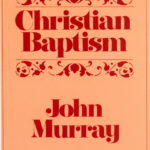 Murray, John. Christian Baptism. Phillipsburg, NJ: P & R, 1980.
Murray, John. Christian Baptism. Phillipsburg, NJ: P & R, 1980.
The book short, but dense. Murray’s skill as an exegete shines through on every page.
Advanced
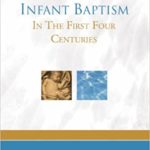
Jeremias, Joachim. Infant Baptism in the First Four Centuries. Philadelphia, PA: Westminster Press, 1960.
Jeremias’ goal is to “lay before the reader the historical material relating to the history of infant baptism in the first four centuries in as concrete and sober a manner as possible.” His study of the extra-Biblical evidence around the early church shows the historical rootedness of covenant baptism. He also makes valuable conclusions related to the issues of household baptisms and corporate solidarity.
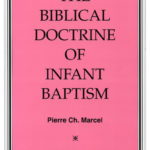 Marcel, Pierre Charles, trans. Philip E. Hughes. The Biblical Doctrine of Infant Baptism: Sacrament of the Covenant of Grace. Eugene, OR: Wipf and Stock, 2002.
Marcel, Pierre Charles, trans. Philip E. Hughes. The Biblical Doctrine of Infant Baptism: Sacrament of the Covenant of Grace. Eugene, OR: Wipf and Stock, 2002.
When it comes to the subject of baptism, Marcel’s work is one every scholar must consider. Not many of us are scholars, of course, but that doesn’t mean we can profit from his teaching.
If you want a longer bibliography that lists representative paedobaptist and credobaptist books, try this.
Save


 I leave this weekend for a two-week study trip in Edinburgh, Scotland. New College Library holds M’Cheyne’s papers, and I’ll be in the Funk Reading Room all day looking at them. I’m particularly interested in a collection of sermons and some theological notebooks he kept. Lord willing, I’ll finish my work in the library a couple of days early, which will allow me to spend the last two days taking in all the incredible sights.
I leave this weekend for a two-week study trip in Edinburgh, Scotland. New College Library holds M’Cheyne’s papers, and I’ll be in the Funk Reading Room all day looking at them. I’m particularly interested in a collection of sermons and some theological notebooks he kept. Lord willing, I’ll finish my work in the library a couple of days early, which will allow me to spend the last two days taking in all the incredible sights.
